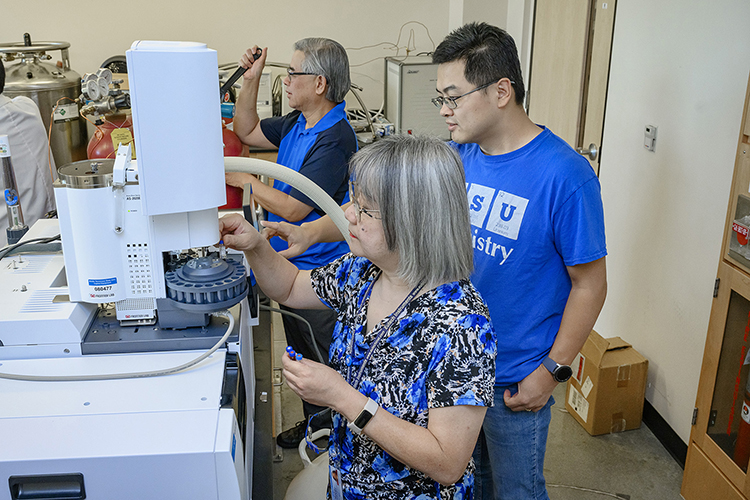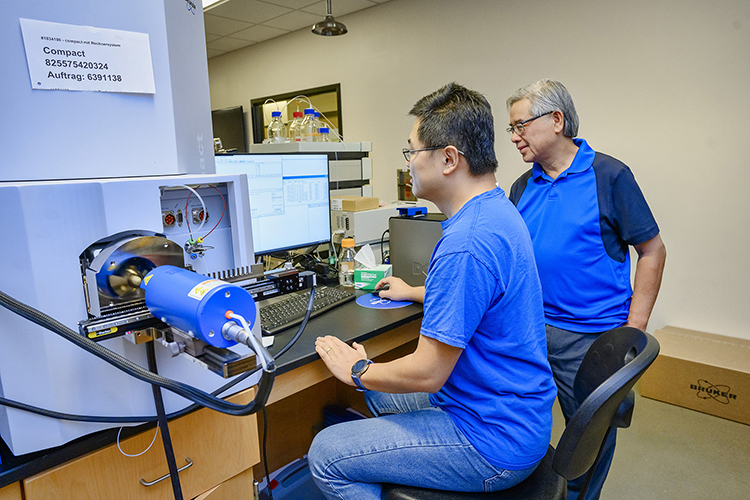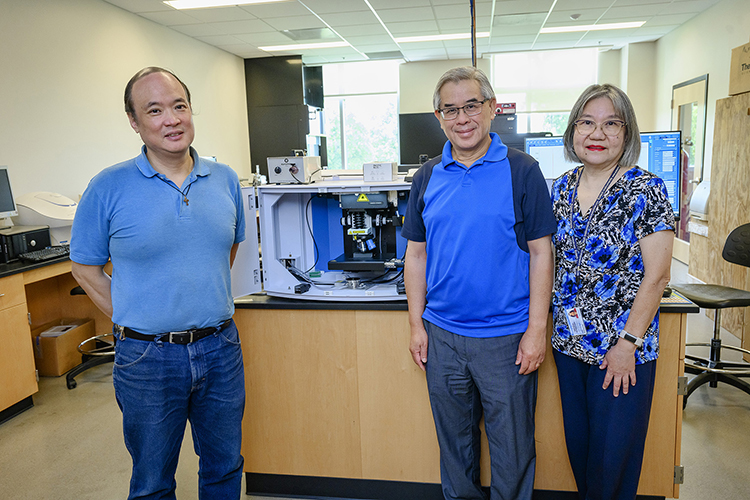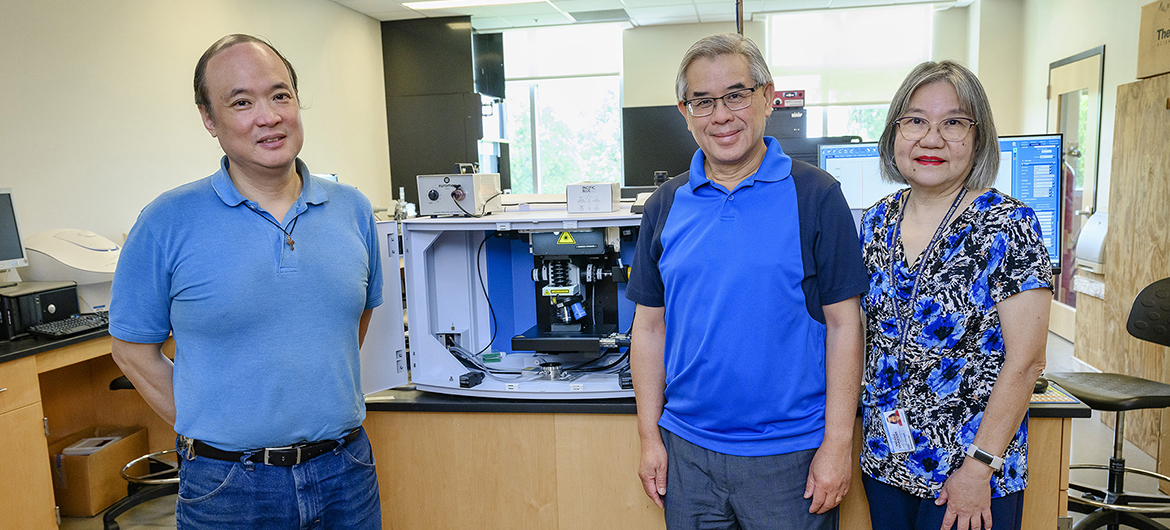Through faculty effort, MTSU’s Department of Chemistry recently procured almost $900,000 in grants to secure multiple pieces of state-of-the-art instrumentation for students and faculty.
“Training on modern instrumentation gives MTSU chemistry undergraduate and graduate students an employment advantage,” said Andrienne Friedli, project participant and former department chair. “The new instruments are important for the department because these state-of-the-art tools allow us to obtain research results that are respected by the chemical community and can be published in high quality journals. In an academic research setting, publications demonstrate productivity.”

Friedli said obtaining this level of equipment at MTSU also makes it more accessible for other students in the region.
“Not only do departmental students use research-grade instrumentation in laboratory coursework and research projects, but students at primarily undergraduate institutions in the region that do not have research-rich environments are also welcomed,” Friedli said. “Our willingness to share equipment and expertise allows more students in the region to get exposed to and experienced on this equipment that employers will recognize and appreciate.”
Faculty Sing Chong, Mike Zhang and Justin Miller spearheaded the instrumentation grants and were awarded both external funding from the National Science Foundation and internal match funding from the Office of Research and Sponsored Programs and the university’s Technology Access Fee fund. The department was funded to purchase four major pieces of equipment — a Raman microscope, two mass spectrometers and a fluorometer.
The new equipment
Chong, a chemistry professor who chairs the department’s instrumentation committee, said the new instruments can potentially help MTSU emerge as a leader in several areas of chemistry research.

“Advanced instrumentation … will provide capabilities for MTSU faculty and students to engage in important areas of research including bioanalytical, medicinal, materials, forensic, and environmental chemistry,” said Chong, who has worked at MTSU for 25 years after moving from Texas to Murfreesboro, Tennessee.
“This may lead to new scientific discoveries in these fields and will help make future MTSU proposals to funding agencies more competitive … bringing recognition to MTSU as the preferred institution of higher learning for students in Middle Tennessee.”
Chong led the first grant to procure the specialized Raman confocal microscope and explained it allows researchers to probe the chemical composition of materials or biological samples with very tiny dimensions invisible to the human eye.

“The university is currently using the microscope to characterize carbon nanotubes and the protein associated with Parkinson’s disease, as well as to identify the fabric fibers and their dyes in forensic investigation and to investigate the hydrogen-bonding of compounds that may lead to the formation of kidney or bladder stones,” Chong said.
Zhang, assistant chemistry professor, was the lead on procuring an ultra-high performance liquid chromatograph coupled to a high resolution mass spectrometer. Joining him in the effort was Chong; Friedli; Tony Johnston, agriculture professor; and Iris Gao, associate agriculture professor and director of MTSU’s International Ginseng Institute.
Chong explained the instrument allows chemists to carry out a wide range of analytical applications involving the separation of hundreds of compounds in each complex sample mixture prior to probing their chemical identities or molecular structure.

“The analytical sensitivity allows detection limits in the picogram range — one-trillionth of a gram — to be achieved for biological, environmental, forensic and materials samples,” he said.
Chong also helped acquire a second mass spectrometer, which is coupled to a gas chromatograph and a pyrolyzer. This can be used to analyze polymers, identify unknown compounds and quantify known compounds and is often referenced in televised crime investigation shows. This is another resource for students and faculty involved in thesis or dissertation research in chemistry.

Justin Miller, associate chemistry professor, applied for an NSF grant to purchase a high-quality fluorescence spectrophotometer, more commonly known as a fluorometer. It provides information about the electronic states of a molecule and other chemical information, and Miller said it would replace the university’s current fluorometer that is near the end of its life cycle.
“The major users of the instrument will pursue exciting fundamental research problems in cutting-edge mechanistic biochemistry and photophysical characterization of new organic, inorganic and hybrid materials,” Miller said in the application, adding that it could support the early careers of both faculty and student researchers, including first generation and low socioeconomic status undergraduate students.
To learn more about opportunities at MTSU’s Department of Chemistry, visit the website at https://www.mtsu.edu/chemistry/.
To learn more about the opportunities available through MTSU’s Office of Research and Sponsored Programs, visit the website at https://www.mtsu.edu/research/.
— Stephanie Wagner (Stephanie.Wagner@mtsu.edu)


COMMENTS ARE OFF THIS POST